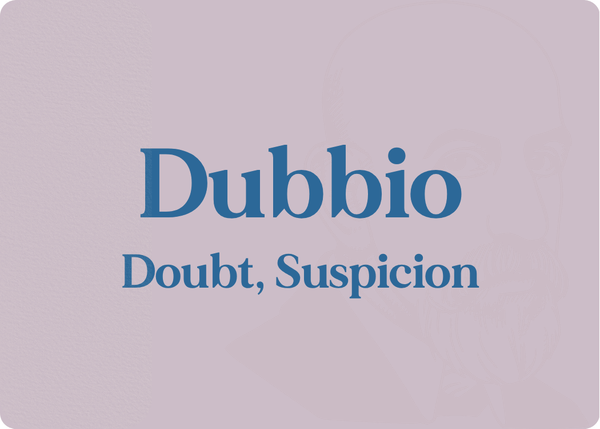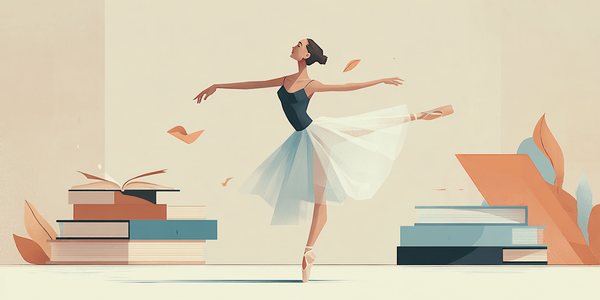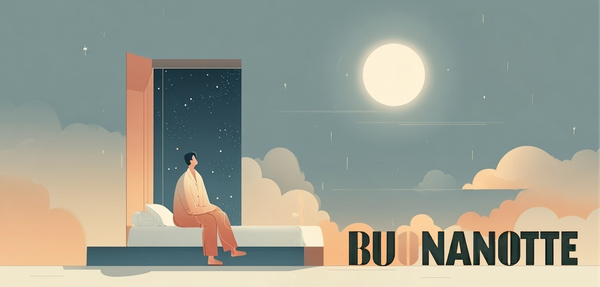Dubbio
NOUN [masculine] /ADJECTIVE
Meaning and English translation 🔖
1. Uncertainty, Doubt
🇬🇧 Uncertainty in expressing a judgment or making a decision.
🇮🇹 Incertezza nell'esprimere un giudizio o nel prendere una decisione.
2. Suspicion, Reservation
🇬🇧 Suspicion or perplexity regarding something or someone.
🇮🇹 Sospetto o perplessità riguardo a qualcosa o qualcuno.
NOUN
| Masculine ♂️ | Feminine ♀️ | ||
|---|---|---|---|
| Singular | il - un dubbio | - | |
| Plural | i - dei dubbi | - | - |
ADJECTIVE
| Masculine ♂️ | Feminine ♀️ | |
|---|---|---|
| Singular | Dubbio | Dubbia |
| Plural | Dubbi | Dubbie |
Example sentences 💬
Ho dei dubbi su quale corso di italiano dovrei fare.
I have doubts about which Italian course I should take.
La sua spiegazione è dubbia e poco convincente.
His explanation is dubious and unconvincing.
This article is brought to you by Giulia School, where you can learn Italian the natural way—with real conversations and passionate teachers guiding you every step of the journey. It’s the closest thing to immersion you can get without living in Italy. Click here to learn more.
Idioms with dubbio 🇮🇹
Essere in dubbio
→ To be in doubt
Sono in dubbio se accettare o meno questa offerta di lavoro.
I'm in doubt whether to accept this job offer or not.
Mettere in dubbio
→ To call into question
Non intendo mettere in dubbio la tua competenza.
I don't mean to call your competence into question.
Senza (ombra di) dubbio
→ Without a (shadow of) doubt
Senza dubbio, è il miglior ristorante della città.
Without a doubt, it's the best restaurant in the city.
È la miglior tennista di sempre, senza ombra di dubbio!
She is the best tennis player of all time, without a shadow of a doubt!
Non esserci ombra di dubbio
→ There's no shadow of a doubt
Non c'è ombra di dubbio che sia stato lui a commettere il crimine.
There's no shadow of a doubt that he committed the crime.
Nutrire dubbi
→ To harbor doubts
Nutro seri dubbi sulla fattibilità di questo progetto.
I harbor serious doubts about the feasibility of this project.
Nel dubbio
→ When in doubt
Nel dubbio, è meglio chiedere consiglio a un esperto.
When in doubt, it's better to ask an expert for advice.
Concedere il beneficio del dubbio
→ To give the benefit of the doubt
Nonostante le apparenze, gli concedo il beneficio del dubbio.
Despite appearances, I'll give him the benefit of the doubt.
Where does the word dubbio come from? 🔎
Dubbio comes from the Latin dubium, which in turn comes from the adjective dubius. The latter is composed of duo (two) and the Indo-European root BHU- (to be).
Therefore, the meaning is "being of two natures" or "oscillating between two possibilities." Interestingly, this root is found in many words expressing duality or uncertainty, such as "dubitare" (to doubt), "duplice" (twofold), and even "duello" (duel).
Did you know that... 🤓
Impress your italian friends with curious facts about Italy and its culture
Who's telling the truth? 🤷♀️Pirandello and doubt on stage.
Yesterday I was having lunch with Diana, the school principal, and we were talking about theater. Since we both really like Pirandello, a Nobel Prize winner for literature in 1934 and Sicilian like Diana, we looked for one of his plays.
We found a wonderful one at the Teatro Parenti in Milan in January, starring Milena Vukotic, a famous Italian theater and cinema actress (she was also La Pina, Fantozzi's wife, but we'll talk about that another time).
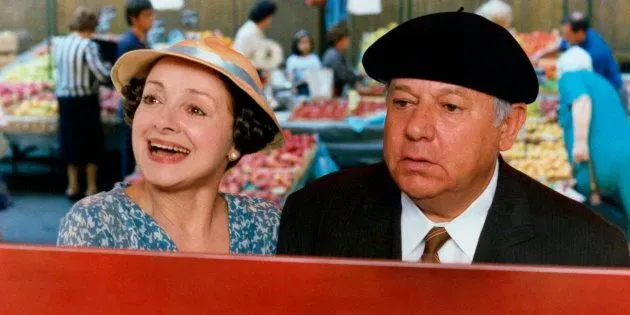
The play is called "Right You Are (if you think so)" ["Così è (se vi pare)"], it was written in 1917, and it's a story about doubt.
The story is set in a small town where three new people arrive: Mr. Ponza, his wife, and Mrs. Frola. Mrs. Frola says she is the mother of Mr. Ponza's wife.
It all seems normal, but there's a problem: Ponza and Mrs. Frola tell two different stories about who they are!
Ponza says that Mrs. Frola is crazy and believes that her daughter (Ponza's first wife, who died years ago) is still alive. Mrs. Frola, on the other hand, says that it's Ponza who is crazy: according to her, Ponza doesn't understand that his current wife is the same as before.
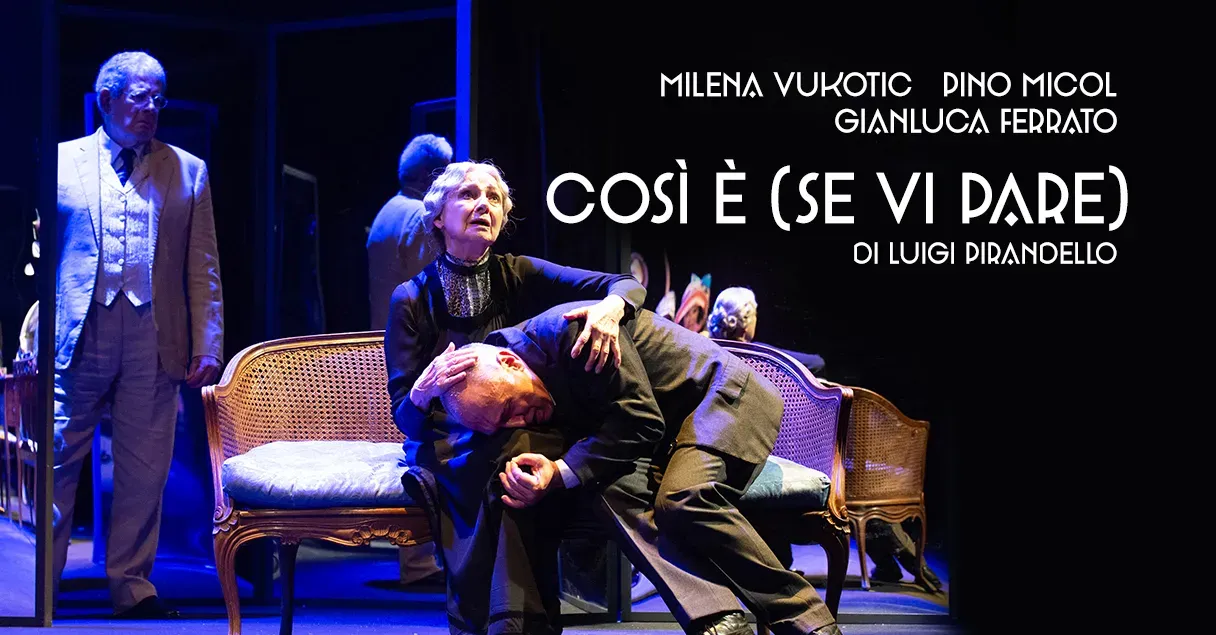
Who is telling the truth? Who is crazy?
The townspeople don't know who to believe. Both Mr. Ponza and Mrs. Frola seem to be telling the truth.
In the end, Mr. Ponza's wife appears, but she doesn't clarify the mystery. She says she is both Mrs. Frola's daughter and Mr. Ponza's second wife, or perhaps neither.
And she concludes with undoubtedly the most famous line of the play:
"I am whoever you believe me to be"
With this line, Pirandello wants to tell us that reality isn't the same for everyone and that there isn't just one truth. It depends on how others see us and how we present ourselves to the world. Doubt, therefore, isn't a problem, but a part of how we live.
What do you think? Have you ever seen or read this play by Pirandello?
If you come to Italy, I recommend you go see it in the theater. And if you're in Milan on January 10th, we can meet at the theater: we'll definitely be there!

